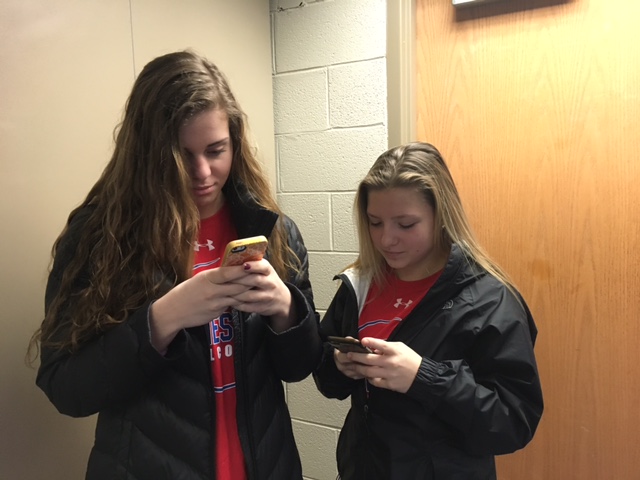Social media is taking over our lives
January 11, 2016
Social media is a helpful tool connecting people all over the world with the click of a button. However, the issue is that some people do not know how to disconnect themselves. The emotional attachment that presents itself with posting pictures, updating “relatable” tweets, and the feeling of obligation to answer messages and snapchats immediately.
This overall obsession with social media has a negative influence on some students. According to a report by Common Sense Media, 75 percent of teenagers in America currently have profiles on social networking sites. For this high percentage, peer pressure becomes a predominant issue that is suggestive for teenagers to become engaged in sexting and cyberbullying. A nationwide survey by the National Campaign to Support Teen and Unplanned Pregnancy discovered 20 percent of teens participating in sexting. This could have been caused by a identity crisis as adolescents struggle to find themselves.
Not only is sexting a scandal encouraged by the growing popularity of social media, but so is cyber bullying and growth of sexual predators. 32 percent of online teens admit to having experienced a range of menacing online advances from others. Further, not only do trolls live under the bridges in childhood stories, but 28 percent of Americans live there as well. Trolling is common form of cyberbullying, as people post inappropriate, inflammatory, or provocative comments on social networks.
Also, with the constant stream of tweets, and updates on other social media sites have the effect of sidetracking students from studying. Students would rather spend more time communicating with people over sites, or looking at updates. According to a study done by Pew Research Center 24 percent of teens go online “almost constantly.” This constant addiction to social media also poses as a serious threat to the social environment for future generations as people grow more self-absorbed, and lose the proper social skills needed to interact with people in person.
Not only does the lack of studying and social interaction suffer due to social media, but the physiological impacts that adolescents can suffer from are substantial. One can be so caught up with the amount of likes they get, and they begin to constantly compare themselves to other. This can cause stress, anxiety, and loss of self-identity. A survey done by Discovery News that follows 753 middle school and high school students, says those who spent two or more hours on social media were more likely to exhibit signs of distress, poor mental health, and even suicidal thoughts.
Social media can be beneficial as it connects people in various countries, and allows people to experience the freedom of sharing information instantly. However, moderation is key.







